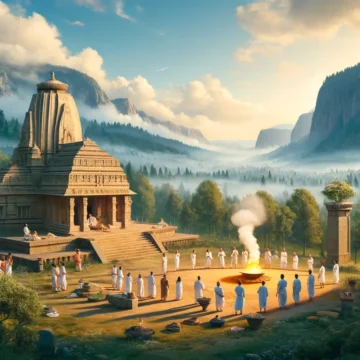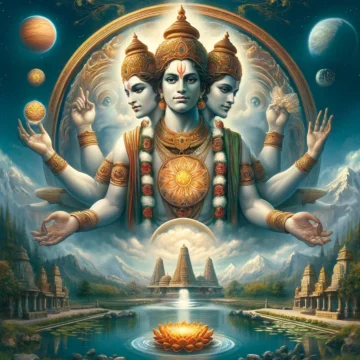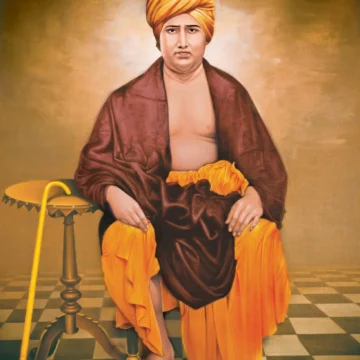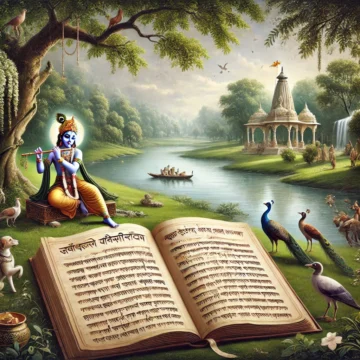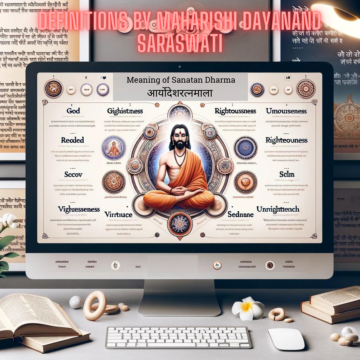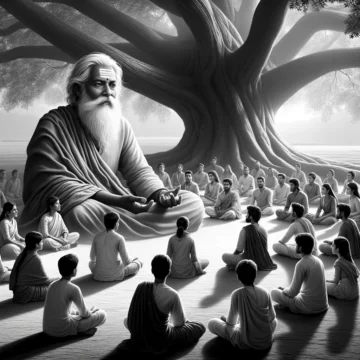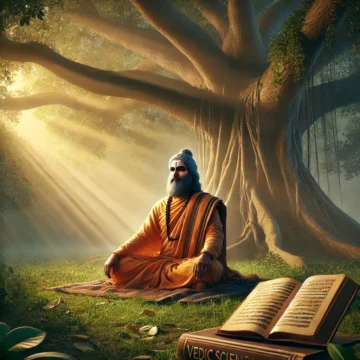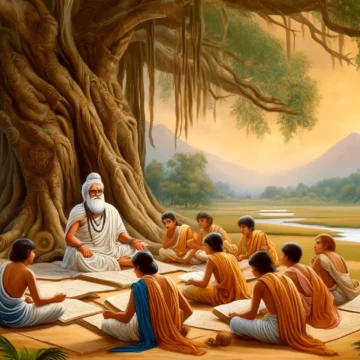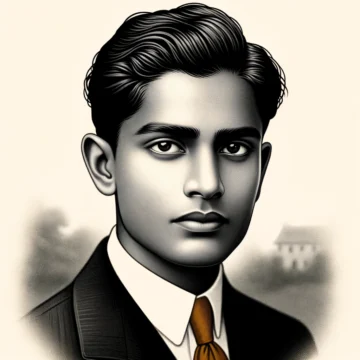Continuing our series on Sanatan Dharma, we explore the final definitions by Maharishi Dayanand Saraswati in "आर्योदेशरत्नमाला." These encompass the soul's nature, universal benefit, renunciation of theft and adultery, and distinctions between inert and conscious entities. Understanding these concepts is key to appreciating Hindu philosophy's depth and inclusivity. Dayanand's insights highlight Sanatan Dharma's dynamic nature, fostering enlightenment in modern life.
Tag: Hindu philosophy
Dattatreya And His Life
Lord Dattatreya, a unique incarnation of Vishnu, embodies the trinity of Brahma, Vishnu, and Shiva, representing creation, preservation, and destruction. His teachings in the Shrimad Bhagwatam, shared with King Yadu, emphasize detachment, self-realization, and harmony with nature. As one of Vishnu's 24 avatars, Dattatreya advocates simplicity, introspection, and spiritual enlightenment, offering timeless wisdom for modern challenges.
Dharma Meaning: Key Concepts in Hindu Philosophy
Continuing our weekly thematic exploration at HinduInfoPedia.org, this post, scheduled for May 29, 2024, delves deeper into the meaning of dharma within Sanatan Dharma. Building on last week’s discussion by Maharishi Dayanand Saraswati, founder of Arya Samaj, we explore the next 36 definitions from his work "आर्योदेशरत्नमाला," highlighting Hindu philosophy's inclusivity and practical applications in daily life.
Shrimad Bhagwat: Exploring its Teachings and Timeless Wisdom
The Shrimad Bhagwat, a cornerstone of Vedic literature, explores devotion and righteousness through Lord Krishna's teachings. Composed by sage Vyasa, its twelve cantos delve into philosophical teachings and spiritual insights. From Krishna's vibrant tales in the Tenth Canto to the profound Uddhava Gita, it offers a comprehensive guide to spiritual enlightenment and influences Indian cultural and spiritual life.
Sanatana Dharma: Secular and Inclusive Values of Hindu Philosophy
Explore the profound teachings of Sanatana Dharma, which emphasize inclusivity and collective well-being through ancient scriptures. This blog delves into how these principles of Hindu philosophy resonate with modern societal challenges, fostering peace and unity across diverse communities under the symbolic shelter of an ancient, all-encompassing tree.
Meaning of Sanatan Dharma: Learn Concepts in Hindu Philosophy
Continuing our weekly thematic exploration at HinduInfoPedia.org, this blog post, scheduled for May 22, 2024, delves into the meaning of Sanatan Dharma, as elucidated by Maharishi Dayanand Saraswati, a revered scholar and founder of the Arya Samaj. His seminal work, "आर्योदेशरत्नमाला," offers 100 essential definitions that form the core of Vedic knowledge, shaping our understanding of Hindu philosophy and its practical applications in daily life.
Sanatan Dharma, unlike more doctrinally rigid religions like Christianity or Islam, presents a unique framework that accommodates diverse beliefs, including atheism. This flexibility allows for various systems of salvation, reflecting the inclusivity fundamental to Hindu thought. Followers who engage in idol worship and those who do not are equally recognized as Hindus.
Arya Samaj, initiated by Maharishi Dayanand, advocates for a form of worship that eschews idolatry, aligning with the tenets of Vedic scripture. This blog series explores these nuances, with special commentary by the author on definitions that particularly reflect the Arya Samaj’s perspectives. Through this exploration, we aim to deepen the reader's appreciation for the broad and inclusive nature of Hinduism and the specific interpretations of Maharishi Dayanand Saraswati.
Hindu Sacred Texts: The Building Blocks of Hinduism
Hinduism, one of the world's most ancient religions, offers a profound collection of sacred texts that have shaped spiritual and everyday life across millennia. Central to these are the Vedas, described as the core of Hindu philosophy and spirituality, along with a diverse array of texts like the Upanishads, Smritis, and the epic tales of the Ramayana and Mahabharata. Each layer, from the foundational Vedas to the practical narratives of the Puranas, serves to guide adherents in their spiritual journey, reflecting the intricate tapestry of rituals, ethics, and cultural customs inherent in Hindu tradition.
Spiritual Journey of Chandrasekharendra Saraswati
On the birth anniversary of Chandrasekharendra Saraswati, explore the profound spiritual journey and teachings of this revered figure. Delve into his contributions to Vedic science, his philosophical teachings, and the enduring impact of his legacy that continues to influence spiritual and educational realms.
Gurukul Education System: A Journey Through Time
The Gurukul Education System, deeply rooted in Hindu culture, has profoundly shaped the intellectual and spiritual landscape of India from the Vedic period to the present day. Gurukuls, traditional residential schools, offered more than just academic knowledge; they were centers of holistic learning where students received physical training, moral discipline, and spiritual enlightenment under the close guidance of a Guru. This system promoted an egalitarian approach to education, where learning was accessible to all based on merit rather than social standing, exemplified by the legendary camaraderie and schooling of Lord Krishna and Sudama. The curriculum was comprehensive, incorporating Vedic studies, mathematics, astronomy, philosophy, and the arts, ensuring a well-rounded development of students. Despite the shifts brought about by colonial influences, the legacy of Gurukul education continues to resonate in modern educational practices, emphasizing the importance of holistic development and moral values.
Sanatan Dharma and the Role of Jiddu Krishnamurti
Explore the profound connection between Jiddu Krishnamurti, a 20th-century spiritual icon, and Sanatan Dharma. This blog delves into how Krishnamurti's teachings, deeply rooted in ancient Hindu philosophy, inspire a journey towards self-realization and challenge traditional spiritual dogmas, emphasizing personal inquiry over religious orthodoxy


